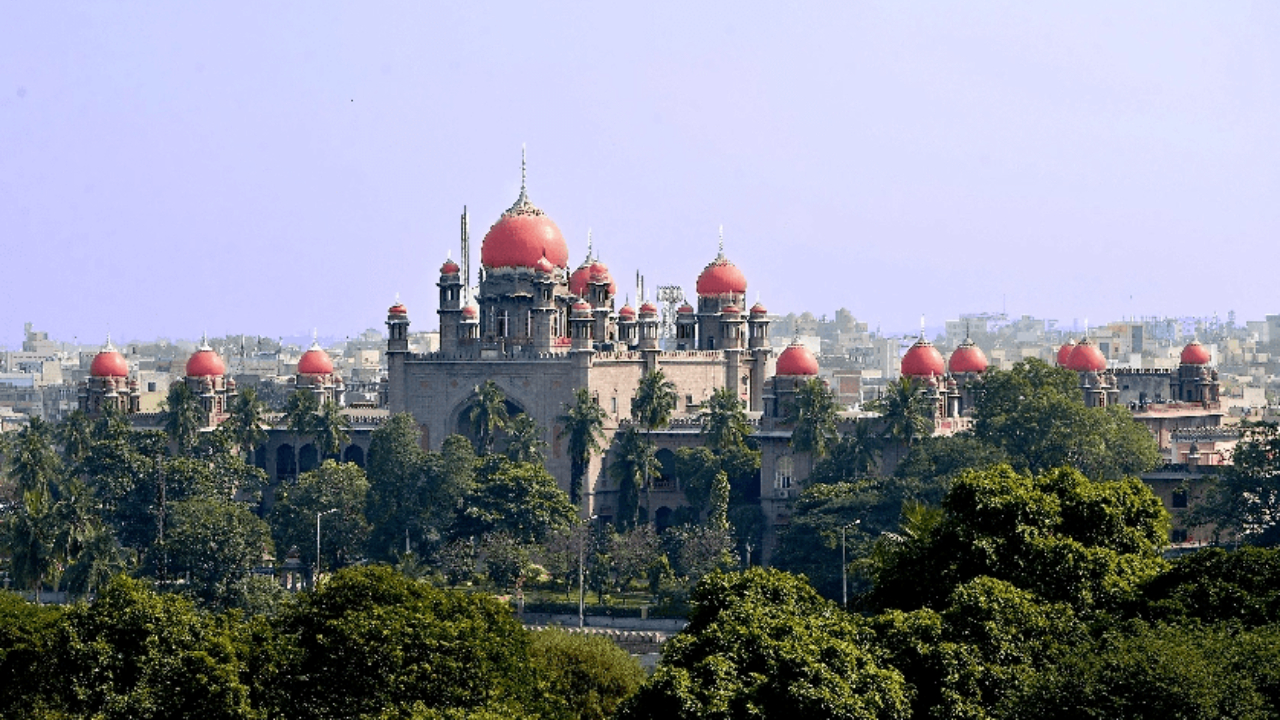The petitioners have maintained that the government failed to provide scientific or empirical data to justify the increase. Although the State cited a caste enumeration as the basis, details of that study have not been made public.
Published Oct 08, 2025 | 8:07 PM ⚊ Updated Oct 08, 2025 | 8:07 PM

The Telangana High Court. (Official website)
Synopsis: The Telangana High Court on Wednesday adjourned to Thursday the hearing on petitions challenging the State Government’s order providing 42 percent reservation for Backward Classes (BCs) in local body elections. Petitioners Buttembare Madhav Reddy and Samudrala Ramesh argued that GO No. 9, issued on 26 September, breaches the constitutional 50 percent cap on reservations and lacks empirical justification.
The Telangana High Court has adjourned the hearing on petitions challenging the Congress-led State Government Order (GO) providing 42 percent reservation for Backward Classes (BCs) in local body elections.
GO No. 9, issued on September 26, has been challenged by petitioners Buttembare Madhav Reddy and Samudrala Ramesh, who argued that the order violates the constitutional ceiling of 50 percent on reservations.
BC leaders, including R Krishnaiah and V Hanumantha Rao, filed implead petitions supporting the government’s decision. The matter came up for hearing before a Division Bench headed by Chief Justice AK Singh on Wednesday, 8 October.
Counsel for the petitioners argued that while the government may seek to enhance political representation, the total reservation cannot exceed the 50 percent limit.
After hearing arguments from both sides, the High Court adjourned the case to Thursday at 2.15 pm. The petitioners also urged the court to restrain the government from issuing the local body election notification, but the Bench refused to grant a stay.
The petitioners have maintained that the government failed to provide scientific or empirical data to justify the increase. Although the State cited a caste enumeration as the basis, details of that study have not been made public.
They also questioned the validity of implementing 42 percent BC reservations without updated population data for Scheduled Castes (SCs) and Scheduled Tribes (STs), pointing out that the government continues to rely on figures from the 2011 Census.
“When even the SC and ST population figures are not officially available, how can the State arbitrarily fix BC quotas?” they asked, reminding the court that a similar 34 percent BC quota order was struck down in 2018.
They further argued that increasing reservations beyond the prescribed limit violates constitutional provisions, while noting that the 50 percent ceiling does not apply to STs in agency areas.
Appearing for the State, Senior Advocate Abhishek Manu Singhvi defended the enhanced quota, telling the court that G.O. No. 9 was issued after a comprehensive study and due process, urging the court not to stay its implementation.
He informed the court that several Bills passed by elected Assemblies have been kept pending by Governors for months, even years, thereby crippling governance.
“When people’s representatives make laws, how can Governors sit on them indefinitely?” Singhvi asked, adding that the Governor’s inaction had also delayed the implementation of the BC reservation decision.
Singhvi further pointed out that all parties had unanimously approved the hike in BC reservations when the Bill was passed in the Assembly.
The increase, he said, was based on the recommendations of a dedicated commission and the State’s own caste survey, asserting that the government has every right to take policy decisions in the interest of the people.
(Edited by Dese Gowda)
